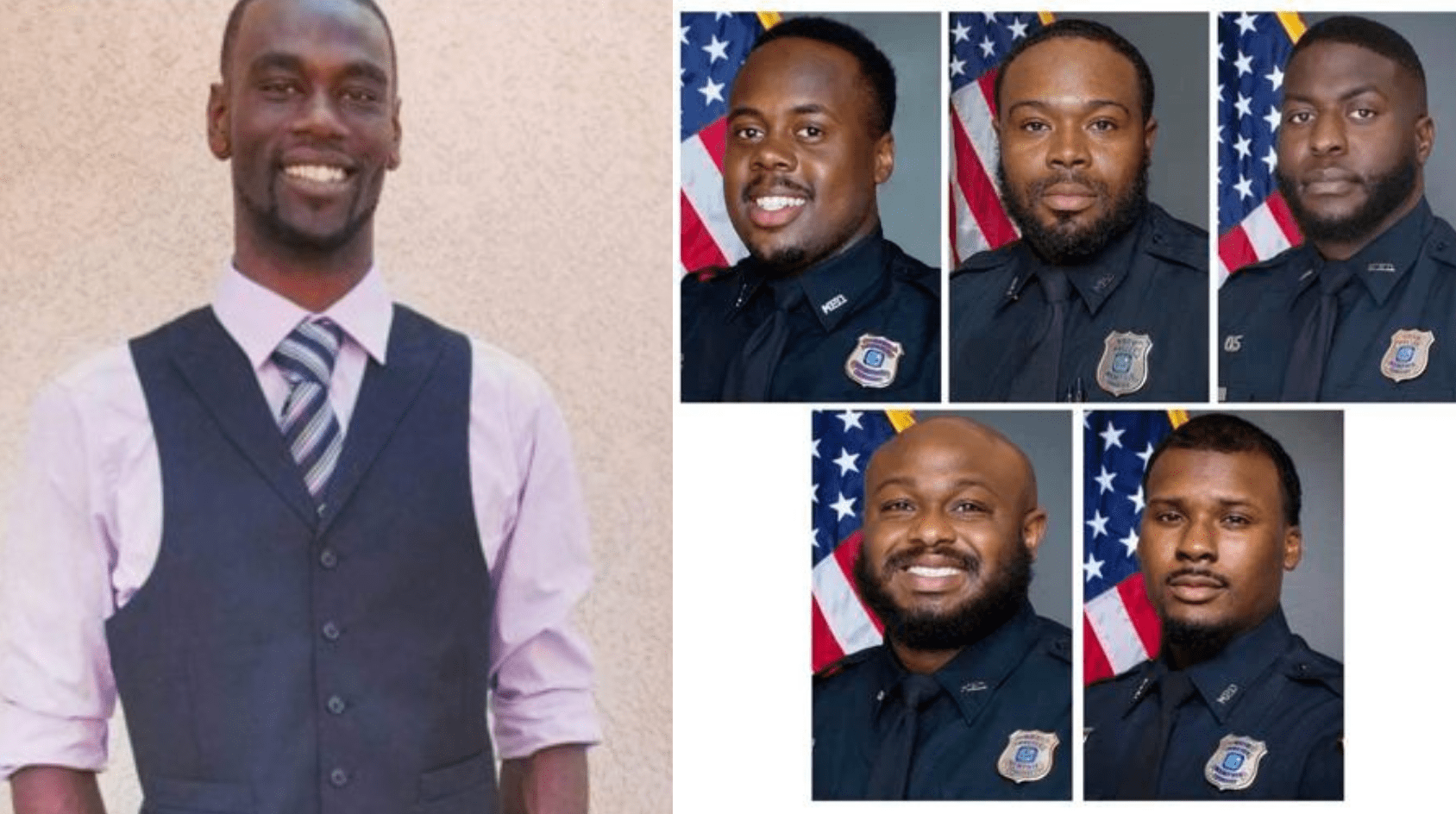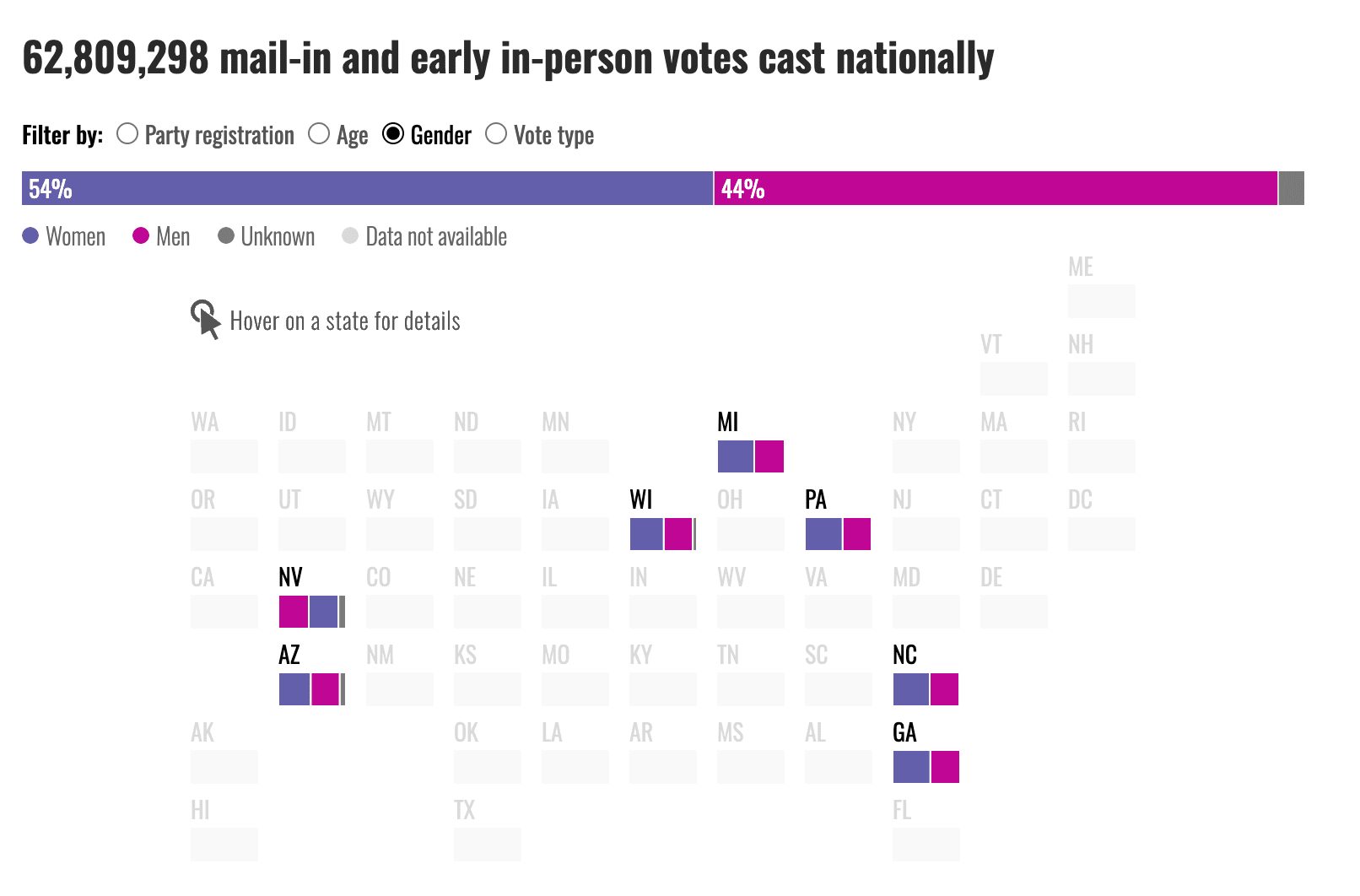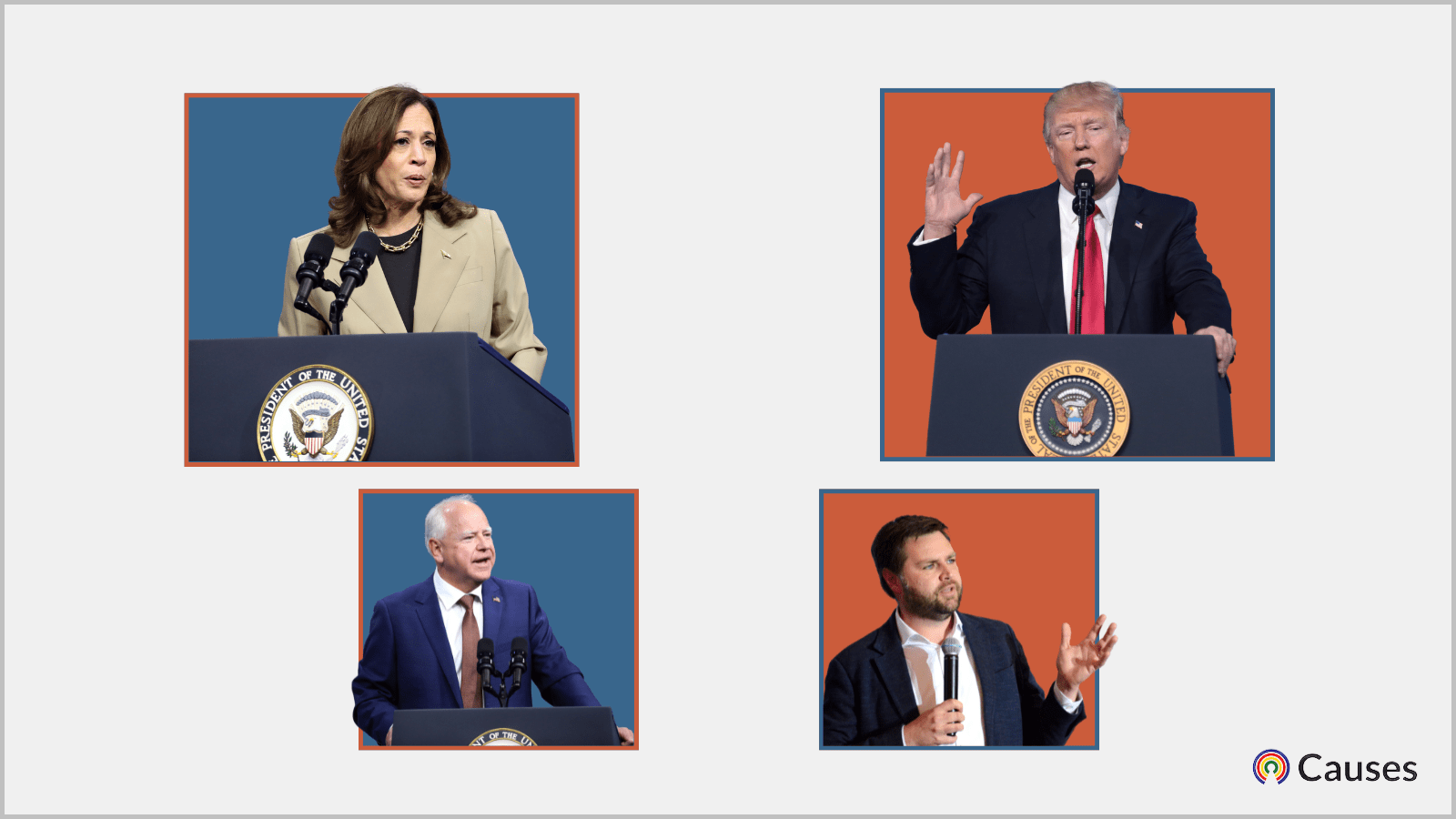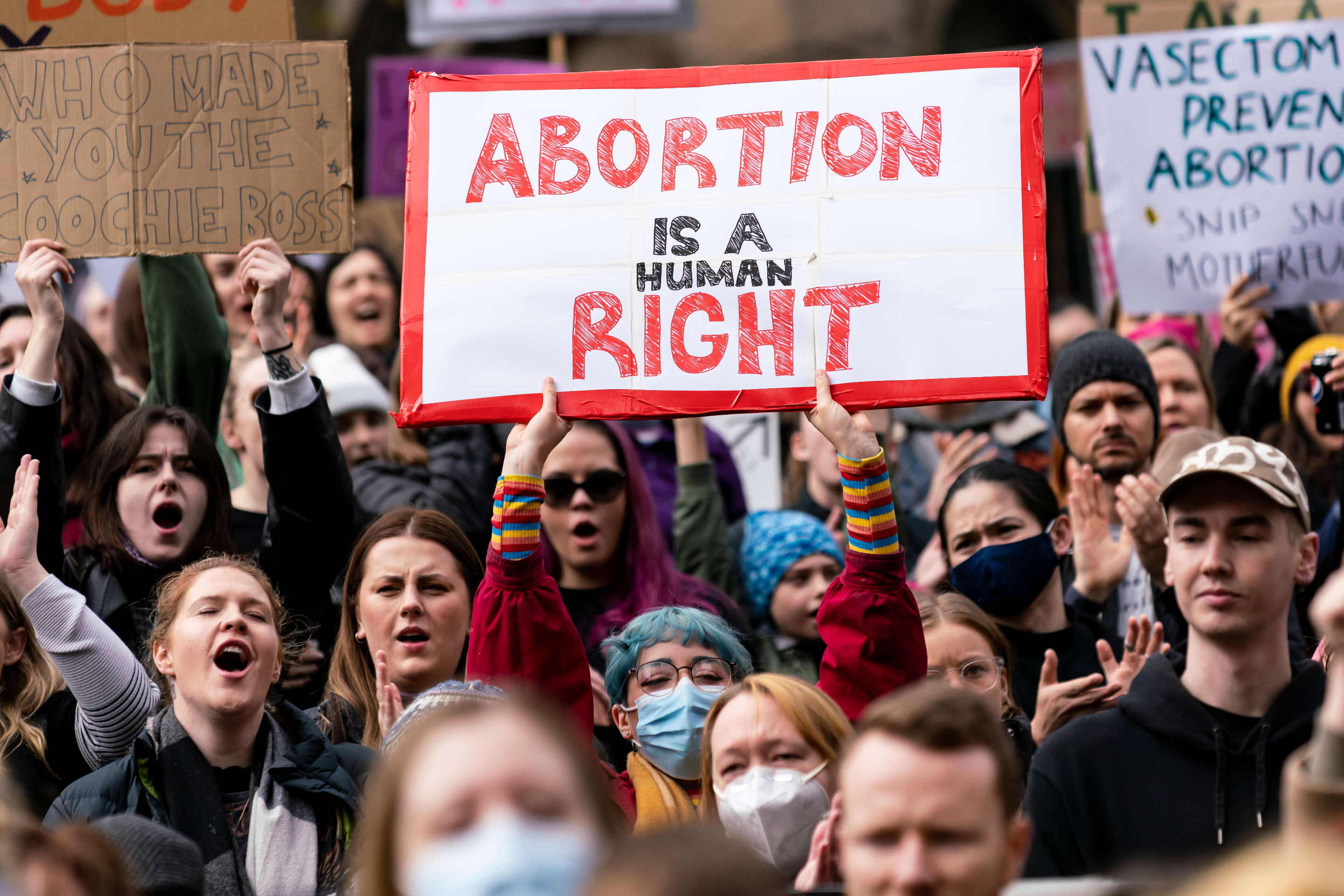
Three Ex-Police Officers Stand Trial in Tyre Nichols Murder Case
How can we take action against police brutality?
Updated September 9, 2024
- The federal trial of three former Memphis police officers charged in the murder of Tyre Nichols begins today. Nichols, a 29-year-old Black man, was stopped for a traffic violation while driving home from work in early 2023. He was pulled from his car and brutally attacked by the officers, dying from his injuries three days later.
- The ex-officers, Tadarrius Bea, Justin Smith Jr, and Demetrius Haley, stand trial for federal civil rights and conspiracy charges in connection to Nicholas' death. Two former officers were also charged but have since pleaded guilty.
- Emmitt Martin III pleaded guilty to federal witness tampering and excessive force charges just last month, and Desmond Mills Jr pleaded guilty to excessive force and obstruction charges. All five police officers who face charges for the killing are Black men. Preston Hemphill, a white police officer who used his taser during Nichols' traffic stop, does not face criminal charges.
Updated May 4, 2023
- Tyre Nichols' recently released autopsy results show that he died of blunt force injuries to the head after being beaten by Memphis Police Department officers on Jan. 7, 2023. The autopsy lists the manner of death as a homicide. It also describes multiple contusions, brain injuries, cuts, and bruises to the head and other parts of the body.
- After shooting Nichols with a stun gun, the officers punched, kicked, and bashed him with a baton as he yelled for his mother. Nichols’ mother has filed a $550 million federal lawsuit against the city, the police department, and police chief Cerelyn “CJ” Davis.
Updated February 8, 2023
- New documents show that the police officers guilty of murdering Tyre Nichols texted photos of his beaten body to at least five people.
- The photos showed Nichols bloodied and handcuffed against the side of a police car, the Memphis Police Department stated.
- One text was sent to a recipient outside of the police force, violating policies about confidentiality.
- Police officials said that the photos were part of a larger set of mocking, hostile, and abusive behaviors against Nichols leading up to his death.
Updated January 30, 2023
- The Memphis police department announced its permanently disbanding the SCORPION Unit, which included the five officers responsible for Nichols' death.
- The department launched the unit in 2021 to prevent crime rates from rising in the city. On Saturday, Memphis police posted a statement on Twitter saying it was in the best interest of all if the unit was permanently deactivated.
"The officers currently assigned to the unit agree unreservedly with this next step. While the heinous actions of a few casts a cloud of dishonor on the title SCORPION, it is imperative that we, the Memphis Police Department take proactive steps in the healing process for all impacted."
UPDATE - Friday, January 27, 2023 - 7:04 PM ET
UPDATE - Friday, January 27, 2023 - 6:40 PM ET
- Memphis authorities are planning to release body camera footage from the arrest - and murder - of Tyre Nichols by five former police officers.
- Cities across the U.S. are bracing for protests and rallies for police reform. Nichols, a 29-year-old Black man, was beaten to death after a traffic stop on Jan. 7. The five former officers - who are also Black - face charges of second-degree murder, aggravated assault, aggravated kidnapping, official misconduct, and official oppression.
- Ahead of the footage's release, Memphis Police Chief Cerelyn Davis warned:
"You're going to see a disregard for human life."
- The video will be uploaded to YouTube in four separate clips sometime after 6 p.m. CT Friday. Surveillance video from the neighborhood will accompany the body camera footage.
This is an ongoing story and will be updated.
What’s the story?
- Five former police officers in Memphis, TN, have been charged with murder for the death of Tyre Nichols, a 29-year-old who was beaten during a traffic stop and died a few days after.
- On top of second-degree murder, the officers face charges of aggravated assault, aggravated kidnapping, official misconduct, and official oppression.
What happened to Nichols?
- Nichols died on Jan. 10, a few days after police stopped him for reckless driving on Jan. 7. Police reported that Nichols had two “confrontations” with officers after he fled the traffic stop and was then taken into custody.
- According to the authorities, he was taken to the hospital in critical condition after complaining of shortness of breath.
- Nichols' family members said he was unrecognizable after the beating during the traffic stop. The family’s attorneys said the officers tased, pepper-sprayed, and restrained Nichols during the “savage” attack, and said he was left “defenseless.” Ben Crump, one of the attorneys, said:
“Yet again, we’re seeing evidence of what happens to Black and brown people from simple traffic stops. You should not be killed because of a simple traffic stop.”
- Nichols' mother, RowVaughn Wells, said her son didn't carry guns or do drugs and was a "beautiful soul." A photo circulating the news and social media shows Nicholas lying in a hospital bed, badly bruised, after his arrest. Wells, and the rest of the family, are left to question why police felt the need to arrest Nichols so violently.
The authorities’ response
- The five officers involved in Nichols' death were terminated from the Memphis Police Department on Jan. 20.
- Memphis Police Chief Cerelyn Davis released a statement to address “the horrific circumstances” of Nichols’ arrest and death. She called the incident “heinous, reckless and inhumane” and said the officers violated multiple policies, “including excessive use of force, duty to intervene, and duty to render aid.” She continued:
“The Memphis Police Department is committed to protecting and defending the rights of every citizen in our city. The egregious nature of this incident is not a reflection of the good work that our officers perform, with integrity, every day."
- The Department of Justice, the Tennessee Bureau of Investigation, and the FBI have launched civil rights investigations into Nichols’ death.
Donate to the family's funeral and memorial services through the GoFundMe page created by Nichols' friend Angelina Paxton.
The Latest
-
 Women Are Shaping This Election — Why Is the Media Missing It?As we reflect on the media coverage of this election season, it’s clear that mainstream outlets have zeroed in on the usual read more... Elections
Women Are Shaping This Election — Why Is the Media Missing It?As we reflect on the media coverage of this election season, it’s clear that mainstream outlets have zeroed in on the usual read more... Elections -
 Your Share of the National Debt is ... $105,000The big picture: The U.S. federal deficit for fiscal year 2024 hit a staggering $1.8 trillion, according to the Congressional read more... Deficits & Debt
Your Share of the National Debt is ... $105,000The big picture: The U.S. federal deficit for fiscal year 2024 hit a staggering $1.8 trillion, according to the Congressional read more... Deficits & Debt -
 Election News: Second Trump Assassination Attempt, and Poll UpdatesElection Day is 6 weeks away. Here's what's going on in the polls and the presidential candidates' campaigns. September 24 , read more... Congress Shenanigans
Election News: Second Trump Assassination Attempt, and Poll UpdatesElection Day is 6 weeks away. Here's what's going on in the polls and the presidential candidates' campaigns. September 24 , read more... Congress Shenanigans -
 More Women Face Pregnancy-Related Charges After Roe’s Fall, Report FindsWhat’s the story? A report released by Pregnancy Justice, a women's health advocacy group, found that women have been read more... Advocacy
More Women Face Pregnancy-Related Charges After Roe’s Fall, Report FindsWhat’s the story? A report released by Pregnancy Justice, a women's health advocacy group, found that women have been read more... Advocacy
 Climate & Consumption
Climate & Consumption
 Health & Hunger
Health & Hunger
 Politics & Policy
Politics & Policy
 Safety & Security
Safety & Security

I get paid over $40 per hour working from home with 2 kids at home. I never thought I'd be able to do it but my best friend earns over 10k a month doing this and she convinced me to try. The potential with this is endless. Heres what I've been doing..
check https://paybuzz108.pages.dev
For those fellow citizens who need and strongly desire to stop Police Brutality, we as voters in a Democracy need to make it a duty to first, hold local executives accountable – governors and mayors. Next, we need commitment that the executives hold Police Commissioners, Commanders, and Chiefs accountable. Then, we need to see that police investigators were given more responsibility and made more accountable. Part of the selection process for the executive and command positions would be the study of strategies to abate and eliminate brutality. We must get our governors, mayors, city council persons, etc. to avoid certain practices and stratgies, and get these Civil Service Executives to diligently implement evidence-based reforms: by using data-driven, research-backed policies and tactics that have shown promise in reducing police brutality. Further, in larger communities we must have strong civilian oversight agencies that
- Receive and investigate complaints against officers
- Review internal police investigations
- Recommend corrective action
- Identify systemic issues and recommending policy changes
- Conducting audits of police practices
- Mediate disputes between police and community members
- Promote transparency through public reporting
In the end, stopping police brutality is an ongoing process integral to every state and city police department and precinct.
Let's briefly examine some failing and successful strategies
Failing Strategies
1. Lack of accountability: Many police departments have failed to hold officers accountable for misconduct and excessive use of force[1][3]. This has allowed problematic behavior to continue unchecked.
2. Insufficient training: Inadequate training, especially in de-escalation techniques and implicit bias, has contributed to officers relying too heavily on force[4].
3. Militarization of police: Providing police with military-grade weapons and equipment has led to an "us vs. them" mentality and increased use of force against civilians[2].
4. Lack of transparency: Many departments have resisted efforts to increase transparency around use of force incidents and officer misconduct[3].
5. Overreliance on punitive measures: Focusing solely on punishing individual "bad apples" without addressing systemic issues has proven ineffective[1].
Successful Strategies
1. Evidence-based reforms: Implementing data-driven, research-backed policy changes has shown promise in reducing police violence[4]. For example:
- A "hands off" policy for officers involved in foot chases in Las Vegas led to a 23% drop in use of force[4].
- Officers trained in "procedural justice" in Seattle used force up to 40% less[4].
2. Limiting police discretion: Reducing opportunities for biased decision-making, such as removing police from minor traffic enforcement, has decreased racial disparities in policing[4].
3. Peer intervention programs: Training officers to intervene when they see colleagues using excessive force has helped prevent escalation of violence[4].
4. Improved data collection and analysis: Systematically tracking use of force incidents and complaints has allowed departments to identify and address problematic patterns[1][4].
5. Community-oriented policing: Fostering stronger relationships between police and the communities they serve has improved trust and reduced confrontations[1][2].
6. Demilitarization efforts: Scaling back the use of military equipment and tactics in everyday policing has helped reduce aggressive encounters[2].
7. Enhanced accountability measures: Implementing civilian review boards with real power and improving internal affairs processes have increased officer accountability[1][3].
8. Crisis intervention teams: Partnering mental health professionals with police to respond to mental health crises has reduced violent encounters[2].
9. Implicit bias and de-escalation training: While more research is needed, some departments have seen improvements after implementing these training programs[4].
10. Policy changes: Banning dangerous practices like chokeholds and no-knock warrants has reduced fatalities in some jurisdictions[2].
To be most effective, experts recommend implementing multiple interlocking reforms simultaneously that work to reduce reliance on police where unnecessary, rectify systemic issues within departments, and repair harms caused to communities[3]. Ongoing evaluation and adjustment of reform efforts is also crucial to ensure their continued effectiveness.
Sources
[1] A better path forward for criminal justice: Police reform https://www.brookings.edu/articles/a-better-path-forward-for-criminal-justice-police-reform/
[2] What Is Police Reform? - Police Brutality Center https://policebrutalitycenter.org/what-is-police-reform/
[3] State and Local Governments Must Take Responsibility for Police Violence https://www.aclu.org/news/criminal-law-reform/state-and-local-governments-must-take-responsibility-for-police-violence
[4] What works to reduce police brutalityhttps://www.apa.org/monitor/2020/10/cover-police-brutality
[5] Police Violence - Amnesty International https://www.amnesty.org/en/what-we-do/police-brutality/
[6] Smart Policing Initiative (SPI) | Overview - Bureau of Justice Assistancehttps://bja.ojp.gov/program/smart-policing-initiative-spi/overview
[7] The Effectiveness and Implications of Police Reform: A Review of the literature https://icjia.illinois.gov/researchhub/articles/the-effectiveness-and-implications-of-police-reform-a-review-of-the-literature
Anyone, police or politician, that takes an oath to protect should be given the maximum sentence allowed for any crime commited while in office.
Did I read this correctly?
These police officers are charged with Civil Rights Violations but NOT actually charged with MURDER?
Tyreeks arrest video clearly shows police brutality and overreach
if there is a traffic violation give a ticket and move on
you cannot force anyone out of their car let alone yank them out throw them on the ground and handcuff them
all of the cops involved should be fired and charged with unlawful assault
Murder is murder whether it is a policeman or a common citizen who commits the act. It's time to bring some equity into this situation.
Abolish police immunity!
We need federal standards for policing! Federal standards for training, Federal standards for mental health care of the officers!
Better health care for officers injured on the job!
You don't really need to ask me this question. Researching my final paper for my undergrad criminology class I found that there have been dozens of books written about this subject by police themselves from all around the world.
Do you want the short answer? HOLD THEM ACCOUNTABLE!
It past due to fix policing
REMOVE QUALIFIED IMMUNITY FROM THE POLICE!
Hold police to account for their actions just like everyone else!
Qualified immunity must be abolished! Police officers must not be allowed to be judge, jury and executioner!
Police brutality is a horrible problem! There are many cases of horrible abuse! Police recruits should be screened at a lot higher level. Power hungry, brutal people, do not belong in positions of power.
No exceptions prosecutions!
Charge those who do and get the police unions behind not protecting abusive acts.
As with most actions where a change in culture is desired, it starts with leadership! It is not going to be easy to turn this ship to a new direction but with strong, dedicated and consistent leadership, the ship will be turned. Leadership has to lay out proper behavior for the officers on the street. Failure to adhere to the established policies must result in swift corrective actions. All officers must be trained on the new policies. And there should be tracking mechanisms to measure progress! If leadership does not want to lead, then replace them.
In a lot of these cases a crime was brought to the attention of the Police. What was done in these cases was wrong, however before you begin to look at the cops look at the individual first and find out why they became a suspect. If you did nothing wrong 99% of the time you won't come into contact with the Police.
Police accountability, judicial accountability, all accountability is the only way to reel in out of control authoritarian behaviors.
We need to eradicate immunity for police!
I'm tired of the terror police impose on communities of color.
Police departments need better screening. As does congress. They also need accountability. As does congress.
This response is not perfect, but a FAST action should be required whenever a citizen does at the hands of the police. This action is what should have been the MINIMUM required of our police command and poolitical leaders for the last 100 years! This is better than what we have seen in DOZENS of other cases in the last two decades. Now we need to decide how to continue to improve.